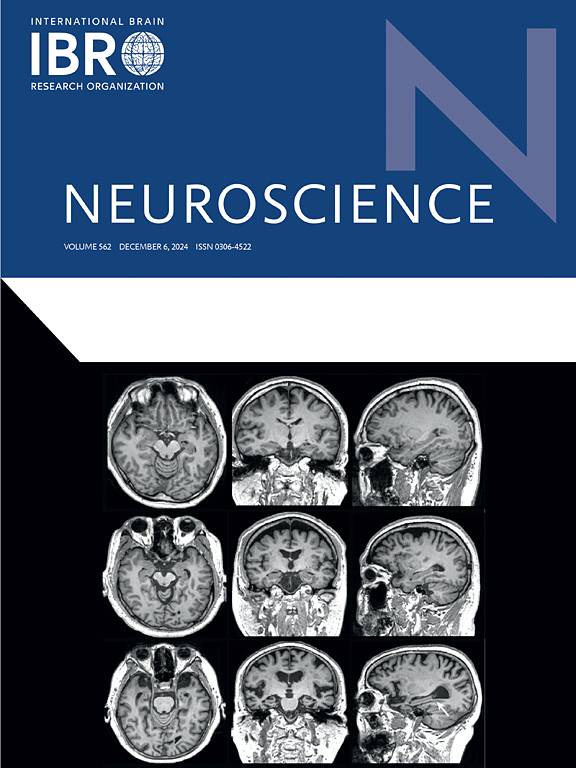Repeated exposure to high-dose nicotine induces prefrontal gray matter atrophy in adolescent male rats
IF 2.9
3区 医学
Q2 NEUROSCIENCES
引用次数: 0
Abstract
Incidences of seizure after e-cigarette use in adolescents and young adults have been reported, raising the concern about the risk of nicotine overconsumption. Few previous studies have investigated the effects of nicotine at high doses on brain and behavior in adolescent animals. In this study, the effects of a 15-day repeated nicotine treatment at a daily dose of 2 mg/kg body weight were investigated in adolescent and adult male rats. Nicotine treatment abolished body weight gain in the adults, but did not affect the body weight significantly in the adolescents. Only the nicotine-treated adolescents showed significant changes in brain anatomy 1 day post-treatment, which manifested as a significant reduction of whole-brain gray matter (GM) volume, a further reduction of regional GM volume in the medial prefrontal cortex (mPFC) and altered GM volume covariations between the mPFC and a number of brain regions. The mPFC of nicotine-treated adolescent rats did not exhibit evident signs of neuronal degeneration and reactive astrocytosis, but showed a significantly decreased expression of presynaptic marker synaptophysin (SYN), along with a significantly increased oxidative stress and a significantly elevated expressions of microglial marker ionized calcium binding adaptor molecule 1 (IBA1). Together, these results suggested that repeated nicotine overdosing may shift regional redox, modulate microglia-mediated pruning, and give rise to structural/connectivity deficits in the mPFC of adolescent male rats.
反复暴露于高剂量尼古丁诱导青春期雄性大鼠前额叶灰质萎缩。
据报道,青少年和年轻人使用电子烟后癫痫发作的发生率,引起了人们对尼古丁过度消费风险的担忧。以前很少有研究调查高剂量尼古丁对青春期动物大脑和行为的影响。在这项研究中,研究了青少年和成年雄性大鼠每天2 mg/kg体重15天重复尼古丁治疗的效果。尼古丁治疗消除了成年人的体重增加,但对青少年的体重没有显著影响。只有接受尼古丁治疗的青少年在治疗后1 天出现了显著的脑解剖变化,表现为全脑灰质(GM)体积显著减少,内侧前额叶皮层(mPFC)区域GM体积进一步减少,mPFC和一些大脑区域之间GM体积协变发生改变。尼古丁处理的青春期大鼠mPFC未表现出明显的神经元变性和反应性星形细胞增多的迹象,但突触前标记突触体素(SYN)的表达显著降低,氧化应激显著增加,小胶质标记离子钙结合接头分子1 (IBA1)的表达显著升高。总之,这些结果表明,反复的尼古丁过量可能会改变区域氧化还原,调节小胶质细胞介导的修剪,并导致青春期雄性大鼠mPFC的结构/连接缺陷。
本文章由计算机程序翻译,如有差异,请以英文原文为准。
求助全文
约1分钟内获得全文
求助全文
来源期刊

Neuroscience
医学-神经科学
CiteScore
6.20
自引率
0.00%
发文量
394
审稿时长
52 days
期刊介绍:
Neuroscience publishes papers describing the results of original research on any aspect of the scientific study of the nervous system. Any paper, however short, will be considered for publication provided that it reports significant, new and carefully confirmed findings with full experimental details.
 求助内容:
求助内容: 应助结果提醒方式:
应助结果提醒方式:


